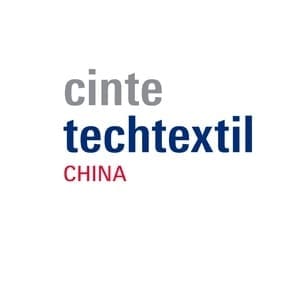CINTE Techtextil was the first textile show on the Asian continent since the pandemic outbreak. It was interesting to see how the nonwoven branch reacted. The show was well
attended and a large number of Chinese customers took the opportunity to inform them selves about needlefelt production.
DiloGroup, leading supplier for needling lines, presented its products and developments. In
its 118 years of history, the company has always set new standards in regard to machine performance and efficiency. Innovative technologies like DI-LOUR, DI-LOOP and Hyperpunch have created new markets for the nonwovens industry and contributed to continuous growth. Examples of recent developments in our machinery are the Hyperlayer, Feeder VRS-P, the DILO Compact Line, the 3-D Lofter, HyperTex, 8000X and diloline 4.0.
The number of visitors was almost the same as two years ago. Machinery and production lines for hygiene products, filters and roofing material were of special interest, but the latest developments of DiloGroup were also widely discussed.
In focus was HyperLayer designed for the highest speeds with hygiene web from fine fibres.
The kinematic solution of this crosslapper transports and lays down web very precisely and is especially suited for very light weight webs with only a few layers. It realizes highest production speeds (web infeed speed up to 200 m/min) at a precise laydown with a minimum of draft.
The new card feeder VRS-P combines the principles of a volumetric, precisely charged feeding with the characteristics of a vibration chute feeder and saves a conventional large trunk. This results in a better and more homogeneous distribution of the flocks and the ceiling height of the building is no more a limiting factor. A vacuumed delivery apron condenses and homogenizes the fibre flock matt. Additional control flaps control the fibre distribution over the working width. On the whole this results in a superior flock matt and consequently better web quality.
The Dilo Compact Line (DCL) was first presented 2015 and has since been successfully used in industry and research. It meets the requirement for the production of small amounts of high quality felts made from special fibres such as carbon fibre, ceramic or ptfe. Very interesting topics like the recycling of carbon fibres are already researched on these lines in various projects. With a working width of the compact carding machine of 1.1 m and a layering width of 2.2 m, only 60 m² of space is required for the installation.
The surface quality of nonwovens is an important parameter and highly influenced by the needle pattern. The new needle pattern “8000X” can be considered a breakthrough for realizing very uniform stitch distributions over a wide range of line speed.The related “6000X” is suitable for Hyperpunch needle looms.
The Hypertex technology combines a grid of endless yarns and nonwoven fabric as a sandwich using the needlepunch process. An additional weaving process becomes unnecessary. The grid improves the tensile strength of products such as filters or roof sheets and will lower costs and production time.
In the field of “textile additive manufacturing” the “3D-Lofter” will provide fibre savings for needlefelts used in automotive and other applications because topologically distributed fibre
masses can be positioned in the felt where needed by so called “individual webforming spots”.
“diloline 4.0” includes a wide variety of “smart manufacturing” actions in collaboration with
Siemens which all aim at further simplifying operation, increasing transparency in web forming and consolidation thereby increasing efficiency. Production data are stored, documented and compared. An “alarm monitor” indicates irregular behaviour. A production
analysis documents the reasons for standstill times. This data can be used to avoid irregular behaviour. Numerous information modules can be recalled via mobile apps and cloud data (mindSpheres). All these methods to control machines and to generate production data will be helpful to further secure the complex functions within a production system independently of personnel and shift.

